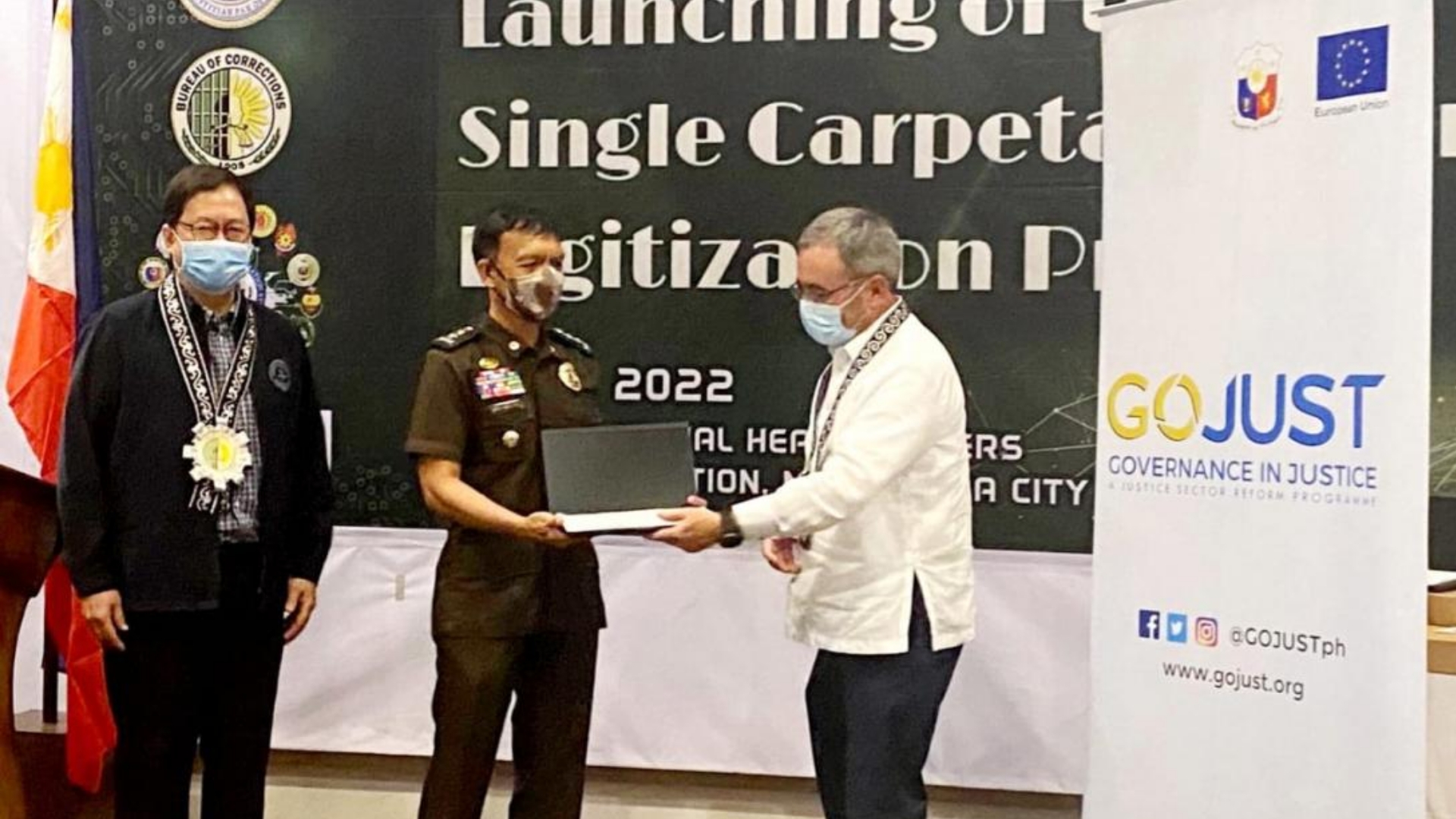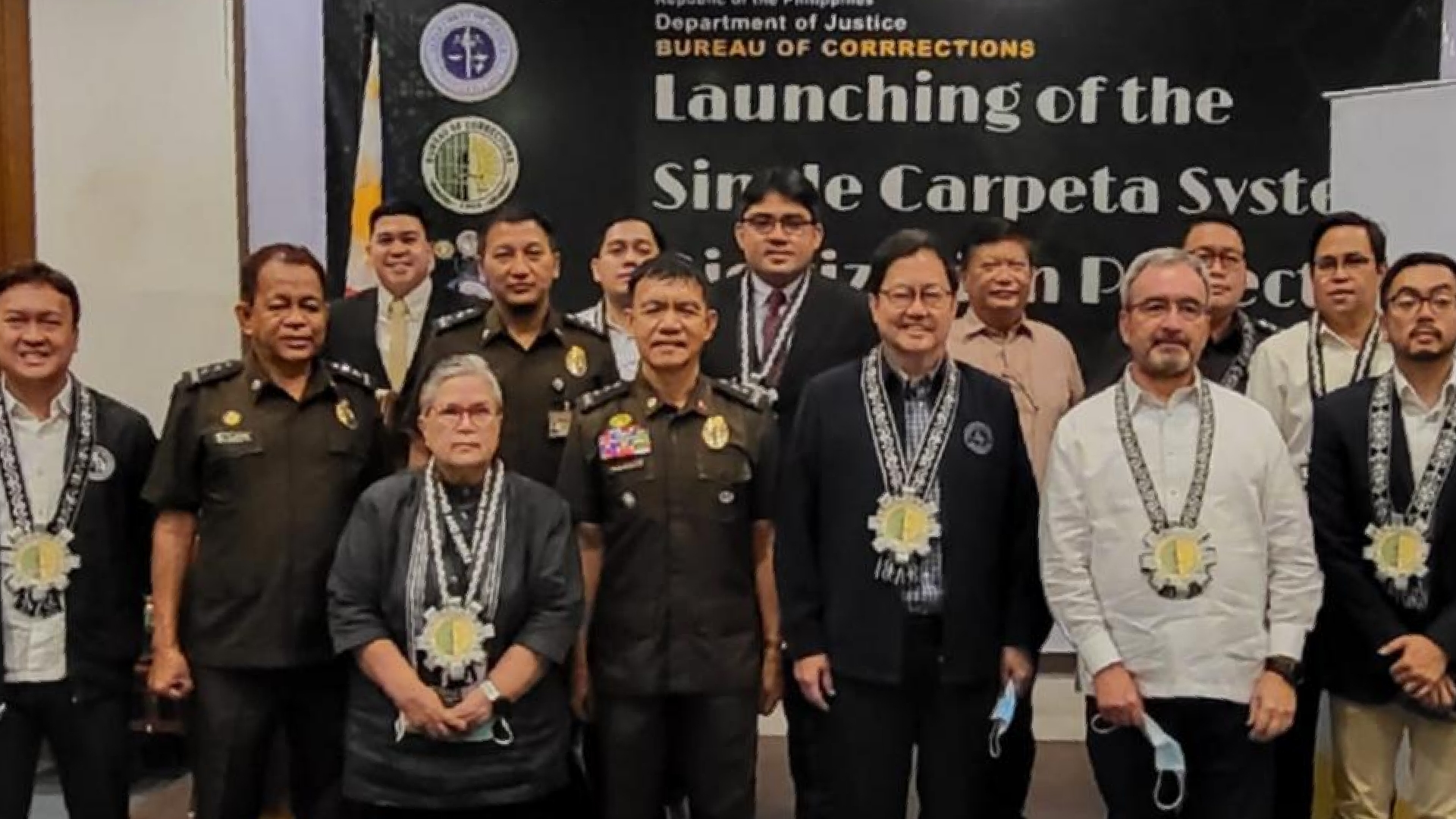EU Funds Digitization of Bilibid Inmate Records

The Philippines, grappling with one of the highest rates of prison overcrowding globally, has taken a significant step towards modernizing its correctional system. The European Union (EU) has provided a substantial P12 million grant to the Bureau of Corrections (BuCor) to digitize the "carpeta" – the comprehensive files containing crucial information on each of the approximately 50,000 inmates at the New Bilibid Prison (NBP).

This ambitious project, spearheaded by the EU's Governance in Justice program (EU-GOJUST), has equipped BuCor with cutting-edge technology, including laptops, high-speed scanners, webcams, and biometric equipment. These tools will not only digitize existing records but also streamline the process for future inmates.
Each "carpeta" holds a wealth of information, from an inmate's biometric data (fingerprints, photographs) to their complete criminal history, including sentencing details. By digitizing these records, BuCor aims to:
- Streamline operations: Accelerate administrative processes, such as inmate transfers, release procedures, and case reviews.
- Enhance security: Improve inmate identification and tracking, minimizing escape risks and enhancing security within the prison.
- Address overcrowding: Facilitate faster case processing, potentially leading to a more efficient justice system and reduced prison congestion.
The digitization project represents a crucial step towards modernizing the Philippine prison system and improving the conditions for individuals deprived of liberty. By embracing technology and streamlining processes, the Philippines can work towards a more just and efficient correctional system.
"The main objective of the EU's GoJust program is to promote access to justice to all, in the Philippines, including persons deprived of liberty," said Massimo Santoro, EU ambassador to the Philippines.
"I am therefore very proud that the EU's support to digitization of carpetas, and our support to the building of the National Justice Information System, will help agencies in their efforts to decongest prisons," Santoro said.
"The path we are paving towards the seamless administration of justice is becoming clearer, and the goal at the end of the road is beginning to take shape," Justice Secretary Jesus Crispin Remulla said.
"We improve our systems to provide real-time justice for all, regardless which side of the justice system you are on," Remulla said.
The European Union (EU) has granted P12 million to the Bureau of Corrections (BuCor) to digitize inmate records at the New Bilibid Prison. This initiative, part of the EU-GoJUST program, aims to address the Philippines' severe prison overcrowding.
The digitized "carpeta," containing vital information on each of the 50,000 inmates, will enhance security, streamline operations, and facilitate faster case processing. BuCor will now have access to real-time information, enabling them to better monitor inmates and identify those eligible for release.
Furthermore, the digitized database will be integrated with other correctional agencies, improving information sharing and expediting crucial processes like parole applications. This initiative, in collaboration with the Philippine government, marks a significant step towards a more just and efficient correctional system
